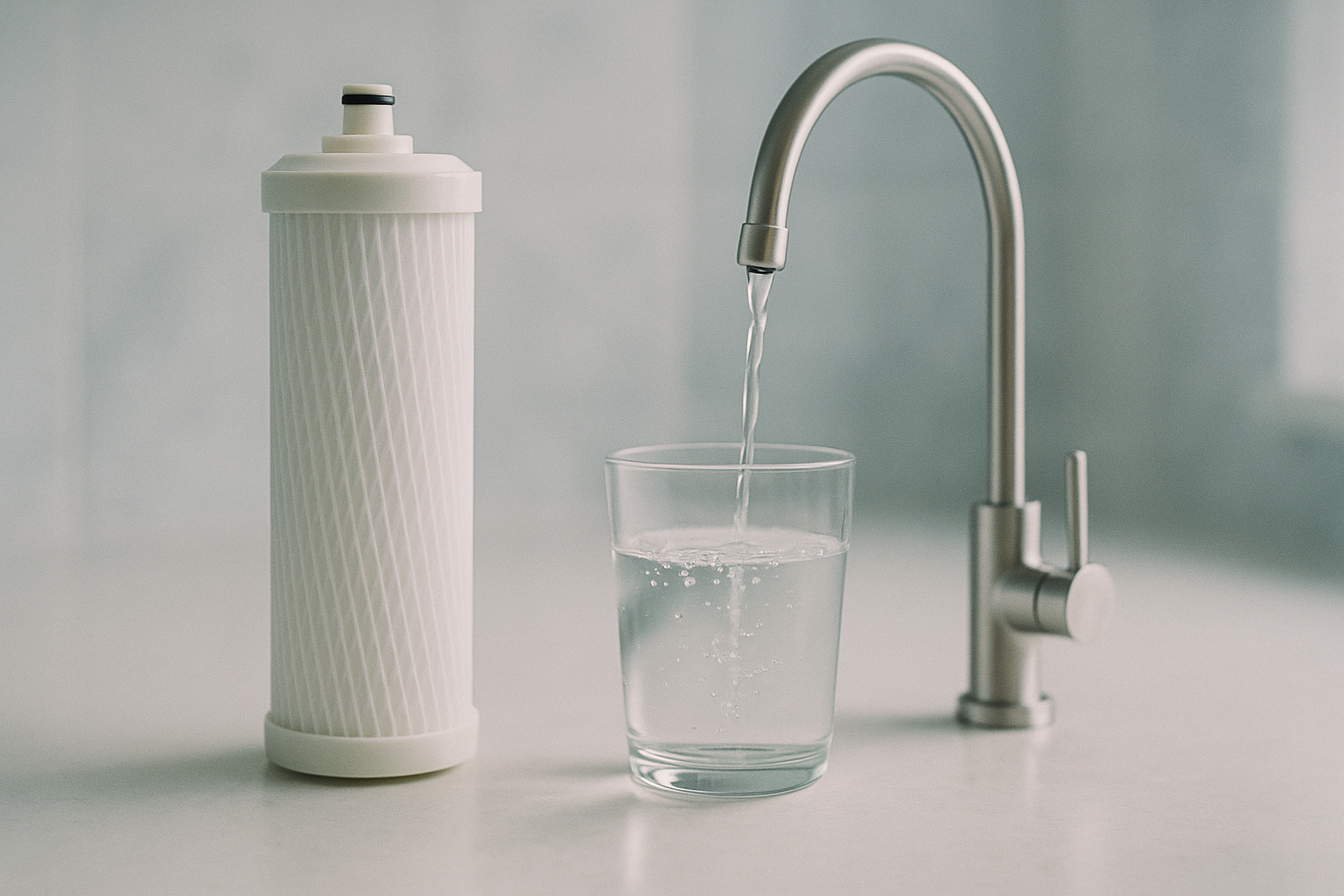Table of Contents
Dubai Water Quality Overview
Dubai’s water supply is fundamental to daily life, business operations, and the city’s dynamic hospitality industry. Understanding Dubai Water Quality means recognizing the comprehensive systems in place to ensure that the water delivered to residents and businesses is safe, clean, and regulated to meet stringent health standards set by local authorities.
Dubai relies primarily on desalinated seawater, processed through state-of-the-art reverse osmosis and multi-stage filtration facilities to provide potable water. This process ensures contaminants and impurities are removed to meet the health and safety guidelines established by the Dubai Municipality and Dubai Health Authority (DHA).
The journey from desalination plants to taps includes meticulous quality control, regular monitoring, and adherence to UAE-specific water standards. These standards align closely with international benchmarks but are tailored to manage the unique factors affecting water quality in Dubai’s desert climate.
Despite this rigorous process, many residents notice a distinct chlorine taste or slight odour in their tap water. This is an expected part of water treatment designed to keep the water protected from microbial contamination during delivery.
Common Concerns About Water Taste and Odour
One of the most frequently discussed issues concerning Dubai’s tap water is the presence of a chlorine taste and smell. This chlorine is added during treatment as a disinfectant to maintain water safety by eliminating bacteria and viruses throughout the distribution network.
While some might find this odour unpleasant, it is a sign the water is effectively protected from contamination. The chlorine concentrations are strictly controlled within limits defined by Dubai Municipality to balance safety with consumer comfort.
If the taste or odour is particularly strong, the source might be related to household plumbing or water storage. In some cases, chlorine can react with organic materials or be retained longer in water tanks, intensifying the taste and smell.
Other potential causes for water taste and odour issues include:
- Stagnant water in pipes or storage tanks
- Accumulation of sediment or biofilms in plumbing
- Corrosion of household water systems
Simple practices, such as flushing taps for a few moments before use or using filtered water for drinking, can mitigate some of these sensory concerns.
The Role of Storage Tanks in Water Quality
Water storage tanks are a vital component of water management in Dubai’s buildings, serving as reservoirs that sustain water pressure and availability, especially in high-rise developments like those found in Business Bay and Dubai Marina.
However, these tanks also demand regular maintenance to prevent quality degradation. If not properly cleaned or sealed, tanks can become breeding grounds for algae, bacteria, or other contaminants, risking the overall water quality that reaches consumers.
Key considerations for storage tanks include:
- Material quality: Tanks made from food-grade materials such as polyethylene or fiberglass are preferred to minimize contamination risks.
- Cleaning frequency: Regular de-sludging and disinfection are essential to remove sediments and biofilms that compromise water safety.
- Proper sealing: Preventing ingress of dust, insects, and other pollutants helps maintain clean water conditions.
Dubai Municipality recommends building management teams and building owners adhere to strict cleaning protocols that support water hygiene. Specialized services like those offered by Saniwater in Dubai provide professional tank cleaning and water treatment solutions tailored to local requirements.
Safety Standards and Regulations in Dubai
The safety of Dubai’s water supply is governed by several local regulations and enforced by bodies such as the Dubai Municipality, Dubai Health Authority, and the Emirates Authority for Standardization and Metrology (ESMA).
Key regulatory components that contribute to maintaining high water quality include:
| Authority | Role in Water Quality Management |
|---|---|
| Dubai Municipality | Sets water quality standards, inspections, treatment monitoring, and public health safeguards. |
| Dubai Health Authority (DHA) | Enforces health-related policies, supports quality assurance programs for drinking water. |
| ESMA | Implements standardization across water treatment equipment and materials to ensure safety and reliability. |
The Dubai government also promotes transparency through initiatives like the Dubai Water Quality Monitoring Program, where data on water tests and safety metrics are periodically shared to uphold consumer confidence.
For updated policies, regulations, and public health information, the Dubai Municipality website provides comprehensive resources.
Frequently Asked Questions About Dubai Water Quality
Is Dubai tap water safe to drink?
Yes, tap water in Dubai complies with rigorous quality standards set by local authorities. It is safe for consumption, though some residents prefer additional filtration or bottled water due to taste preferences.
Why does Dubai tap water sometimes taste or smell like chlorine?
Chlorine is intentionally added in controlled amounts to disinfect the water and protect against microbial hazards during distribution. The taste and smell are harmless but may be noticeable especially in homes with storage tanks or stagnant pipes.
How often should water storage tanks be cleaned?
Dubai Municipality recommends cleaning water tanks at least twice a year, but frequency can increase depending on tank size, use, and environmental conditions.
Can I improve water taste without compromising safety?
Yes, using point-of-use water filters or letting water aerate in an open container can reduce chlorine taste without affecting the safety profile.
What measures are in place if water contamination occurs?
Dubai has emergency protocols involving immediate notification, water flushing, re-treatment, and public communication to manage and mitigate contamination risks.
Conclusion and Next Steps
Understanding **water quality in Dubai** involves recognizing the robust systems and controls ensuring water safety while addressing common concerns like chlorine taste and the role of storage tanks. Dubai’s local authorities maintain high standards that align with health priorities and rapid urban development demands.
For residents and businesses, maintaining water quality also requires proper storage tank maintenance and awareness of water conditioning options. Engaging professional services such as those offered by Saniwater can support these goals, ensuring purity and peace of mind.
Stay informed by visiting official resources provided by the Dubai Municipality and support sustainable water use practices in your community.
Taking small but consistent actions helps everyone experience the benefits of clean, safe, and pleasant-tasting water across Dubai’s vibrant neighborhoods.
Understanding Dubai Water Quality: Standards, Challenges, and Maintenance
Dubai’s rapid urbanization, extreme climate, and reliance on advanced infrastructure make water quality a paramount concern for the city’s residents, businesses, and governing bodies. **Water quality in Dubai** is not only a matter of public health but also a vital element in ensuring sustainable development, environmental protection, and the overall quality of life in the emirate. In this section, we delve deeper into how Dubai regulates, monitors, and maintains water quality, focusing on the local frameworks and challenges unique to the city.
Regulatory Framework Governing Dubai Water Quality
The governance of water quality in Dubai is primarily overseen by Dubai Municipality, with close coordination from the Dubai Health Authority (DHA) and the Dubai Electricity and Water Authority (DEWA). These authorities set and enforce stringent standards that align with national and GCC-wide regulations but are specifically tailored to address Dubai’s climatic conditions and urban demands.
Dubai Municipality ensures that water supplied to households and businesses meets the highest purity levels to prevent waterborne diseases and contamination risks. Regular sampling and testing protocols are mandated, covering parameters such as microbial content, chemical composition, turbidity, pH levels, and residual disinfectants.
The key standards and guidelines applied in Dubai reflect a blend of UAE federal regulations and specific directives by the Dubai Municipality’s Environmental Department. These standards correspond closely with the Emirates Authority for Standardization and Metrology (ESMA) quality requirements but go further to ensure compliance through localized enforcement.
- Microbiological Safety: Limits on coliform bacteria, E. coli, and pathogens to ensure water is free from biological hazards.
- Chemical Parameters: Control of contaminants such as chlorine levels, heavy metals, nitrate, fluoride, and other naturally occurring minerals.
- Physical Characteristics: Turbidity, color, odor, and taste assessment to ensure water is aesthetically acceptable and safe.
This rigorous framework protects public health and supports Dubai’s considerable hospitality, tourism, and residential sectors, which demand consistently high water quality.
Challenges in Maintaining Optimal Water Quality in Dubai
Dubai’s desert climate presents unique challenges for water quality management. The scarcity of natural freshwater sources compels the city to rely heavily on desalination plants operated by DEWA. While desalination technology effectively converts seawater into potable water, it also introduces complexities in maintaining stability and quality over distribution networks.
Some of the specific challenges include:
- Source Water Quality: The Arabian Gulf’s saline water contains high levels of salts and impurities, requiring extensive treatment to produce safe drinking water.
- Distribution System Integrity: The high temperatures in Dubai accelerate wear and corrosion in water pipes, which can lead to contamination risks if not properly maintained.
- Storage and Handling: Water tanks in residential and commercial buildings must be regularly cleaned and inspected to prevent biofilm growth and sediment accumulation.
To combat these challenges, Dubai employs a combination of advanced technological solutions and strict regulatory oversight. DEWA utilizes multi-stage reverse osmosis (RO) and ultraviolet (UV) disinfection methods to ensure that desalinated water meets rigorous purity standards. Meanwhile, Dubai Municipality mandates frequent pipeline flushing and corrosion control treatments within the municipal water network.
Residents are also educated on best practices for maintaining water quality inside their premises, including regular cleaning of storage tanks and using approved filtration systems when necessary. Property developers and facility managers in popular Dubai communities such as Dubai Marina, Arabian Ranches, and Downtown Dubai are required to adhere to building codes that promote water hygiene and safety.
Continuous Monitoring and Public Health Impact
Maintaining **water quality in Dubai** is a continuous process guided by real-time monitoring, lab testing, and data analytics. Dubai Municipality’s environmental teams conduct thousands of water samples annually across residential, commercial, and public sectors to ensure ongoing compliance with health standards.
Modern laboratories in Dubai incorporate high-precision testing techniques to detect contaminants at trace levels, significantly reducing the risk of outbreak incidents related to water contamination. The Dubai Health Authority collaborates closely with the municipality to address any reported illnesses potentially linked to water quality, enabling swift investigations and corrective actions.
The city’s commitment to water quality is also reflected in public awareness campaigns that encourage responsible water use, conservation efforts, and prompt reporting of suspected water quality issues. These initiatives contribute to Dubai’s reputation as a leading city in environmental health safety and infrastructure reliability.
The Role of Technology and Innovation in Enhancing Dubai Water Quality
Dubai places heavy emphasis on leveraging innovative technologies to enhance water quality management. Smart water grids and IoT-integrated sensors have been deployed in several districts such as Business Bay and Nad Al Sheba to provide live data on water pressure, flow rates, and possible contamination events. This proactive approach allows for close monitoring and rapid response to any irregularities in the water supply chain.
Additionally, research partnerships with UAE universities and technology firms are driving new treatment methods such as advanced oxidation processes (AOP) and nanofiltration, which promise to improve efficiency and reduce the environmental footprint of water treatment facilities.
Dubai’s vision for sustainability includes circular water economy models, where wastewater is treated and reused in landscaping, agriculture, and industrial applications, reducing reliance on desalinated water for non-potable uses and preserving potable water supplies.
In conclusion, **water quality in Dubai** is managed through a comprehensive system of regulations, technology, and public engagement that addresses the emirate’s unique environmental conditions and development pressures. This multifaceted approach ensures that every drop supplied to Dubai’s residents meets the highest standards of safety, cleanliness, and reliability.


